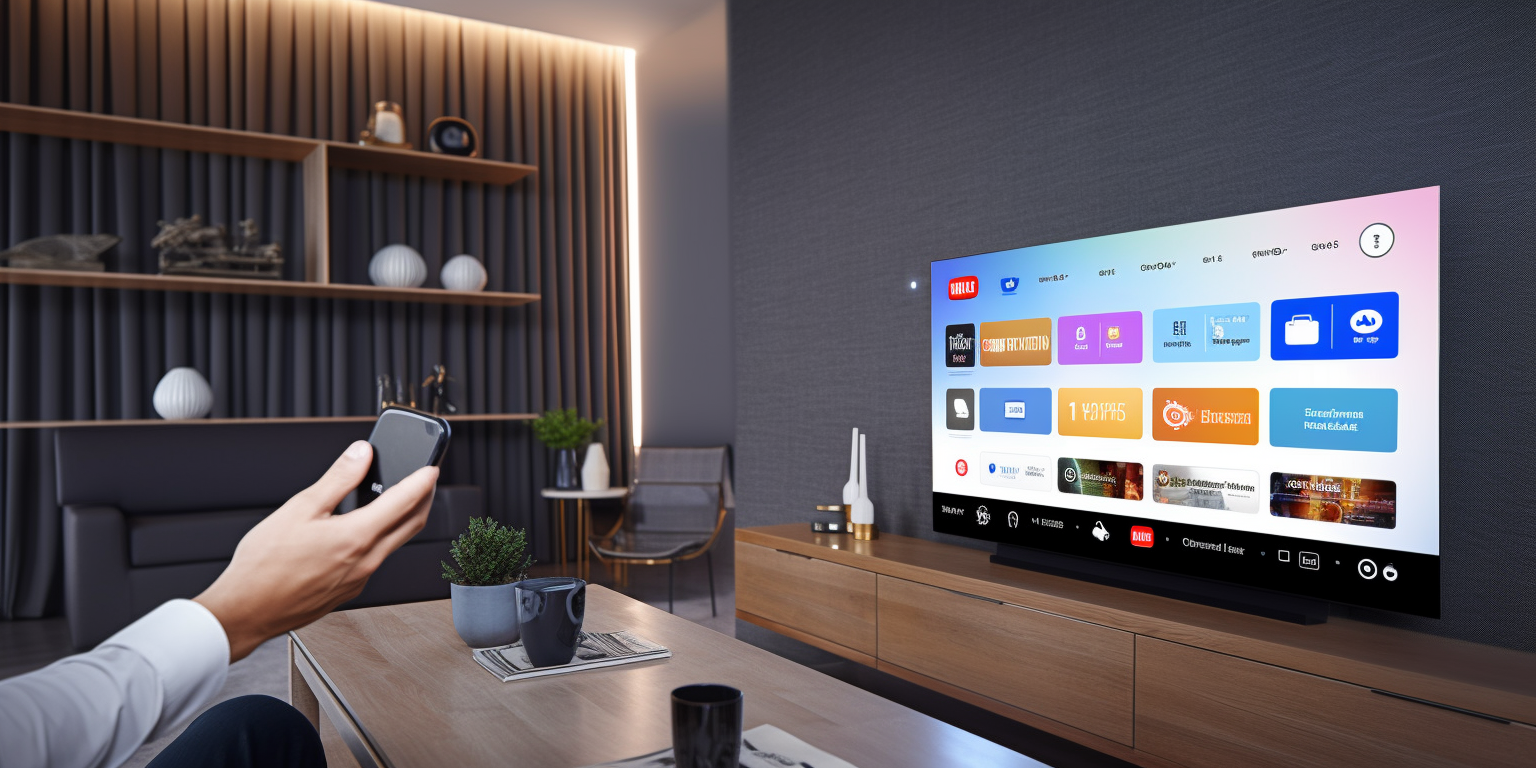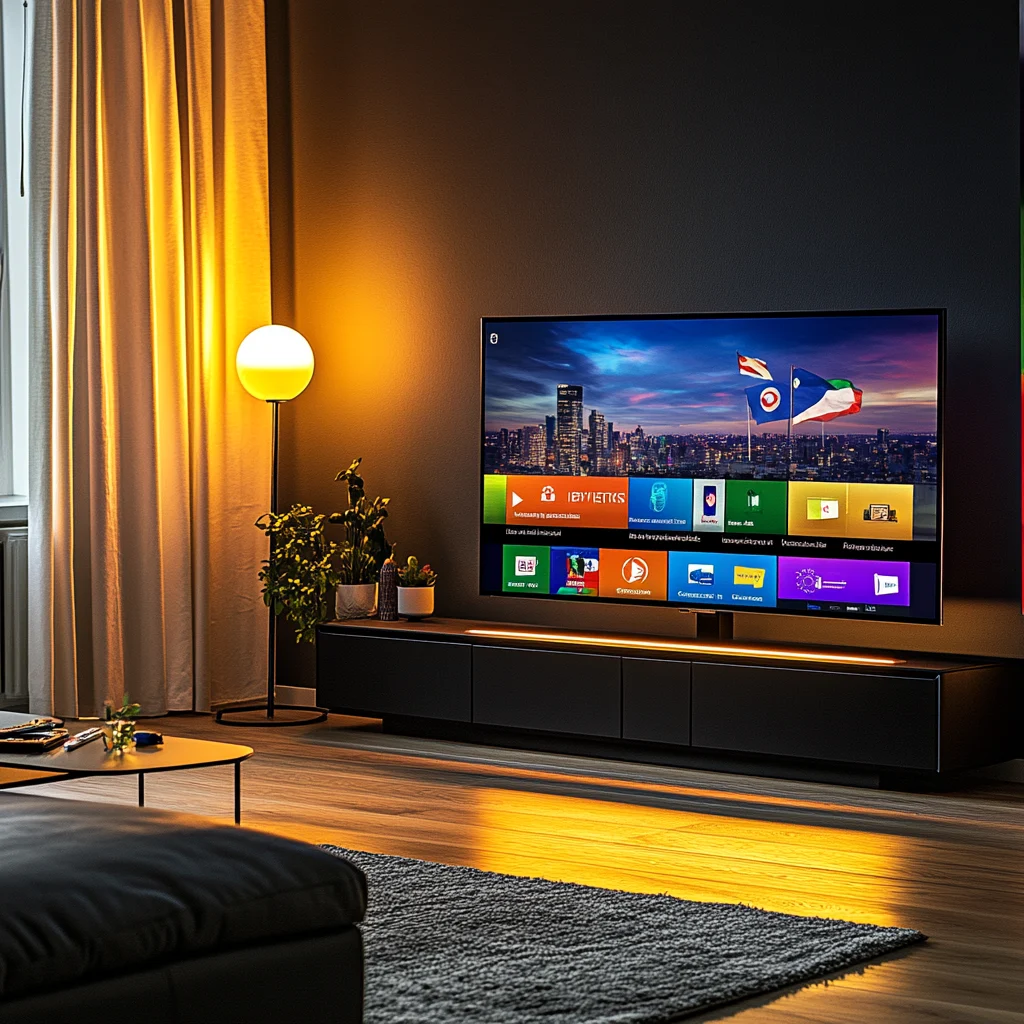Introduction
Did you know that over 62% of traditional cable subscribers are considering switching to IPTV services in 2024 due to rising cable costs? The average American now pays $217 monthly for cable, while the best ip-tv providers offer similar content for as little as $15 per month. This dramatic price difference, combined with flexible viewing options, explains the surge in IPTV popularity. Whether you’re a sports enthusiast, movie lover, or international content seeker, finding a reliable IPTV provider has become essential for cost-conscious entertainment consumers seeking freedom from traditional cable constraints.

What Makes a Great IPTV Service?
When evaluating the quality of IPTV services, several critical components determine whether a provider deserves your subscription:
- Channel Selection: Minimum 5,000+ live channels with diverse content categories
- Streaming Quality: HD and 4K resolution options with minimal buffering
- Device Compatibility: Support for Firestick, Android, iOS, Smart TVs, MAG boxes
- VOD Library: Extensive on-demand content including latest movies and series
- EPG Integration: Functional electronic program guide for easy navigation
- Connection Stability: Consistent uptime with minimal service interruptions
- Customer Support: Responsive service with multiple contact methods
- Multi-Connection Options: Ability to stream on multiple devices simultaneously
- Pricing Structure: Transparent pricing with no hidden fees
Timing: How Long Does IPTV Setup Take?
Setting up an IPTV service typically involves minimal time investment compared to traditional cable installation:
- Account registration: 5-10 minutes
- Payment processing: Instant to 1 hour (depending on payment method)
- Receiving access credentials: Usually within 24 hours (premium providers offer instant access)
- App installation: 5-15 minutes depending on device
- Configuration: 10-20 minutes for initial setup
- Testing connections: 15-30 minutes recommended
Total average setup time: Approximately 1-2 hours from purchase to full functionality (compared to 2-5 business days for average cable installation).
Step-by-Step Instructions
Step 1: Evaluate Your Viewing Needs
Before subscribing to any IPTV service, honestly assess what content matters most to you. Are sports channels your priority? Do you need international programming? Make a list of must-have channels and content types to guide your selection process. This personalized approach ensures you’ll choose a provider that specifically meets your entertainment requirements rather than paying for unnecessary content.
Step 2: Research Provider Reliability
Investigate potential providers thoroughly by checking Reddit forums, TrustPilot reviews, and dedicated IPTV comparison sites. Look for consistent mentions of reliability, with particular attention to providers maintaining at least 99% uptime over the past six months. Your ideal provider should have a minimum two-year operational history, demonstrating stability in this rapidly changing market.
Step 3: Test Before Committing
Most reputable IPTV providers offer 24-48 hour trial periods for a nominal fee ($1-3). Take advantage of these trials to test stream quality during peak hours (7-10 PM), verify channel availability, and check compatibility with your specific devices. This small investment can save you significant frustration later by confirming performance meets your expectations.
Step 4: Setup Your IPTV Service
Once you’ve selected a provider, the setup process typically involves:
- Download the recommended app (common options include IPTV Smarters, GSE Smart IPTV, or TiviMate)
- Enter the M3U URL or credentials provided by your service
- Organize channels into favorites for easier navigation
- Adjust buffer settings based on your internet speed (higher buffer for slower connections)
- Test multiple channels across different categories
Technical Requirements
For optimal IPTV performance, ensure your setup meets these minimum specifications:
- Internet connection: 25+ Mbps download speed (50+ Mbps recommended for multiple streams)
- Router capabilities: Dual-band with QoS features for prioritizing streaming traffic
- Device storage: Minimum 2GB free storage for app and cache management
- Processing power: 1.5GHz quad-core processor or better for smooth playback
- Memory: At least 2GB RAM to prevent buffering issues

These requirements ensure smooth playback of HD content without the frustrating buffering that plagues users with inadequate technical infrastructure.
Common Mistakes to Avoid
When subscribing to IPTV services, avoid these frequent pitfalls:
- Choosing based solely on price (cheapest isn’t always best)
- Ignoring payment security (use protected payment methods)
- Skipping the trial period (always test before committing)
- Overlooking VPN requirements (some services require VPN protection)
- Signing lengthy contracts (flexibility is key in the evolving IPTV market)
- Neglecting to check device compatibility (not all services work on all devices)
- Falling for “unlimited everything” marketing claims (verify specific channel lists)
Best Practices for IPTV Management
To maximize your IPTV experience, implement these maintenance strategies:
- Regularly clear app cache (every 2-4 weeks)
- Update apps and firmware consistently
- Utilize wired connections when possible
- Create custom channel groups for easier navigation
- Schedule viewing during off-peak hours for premium content
- Maintain a backup provider for critical viewing events
- Use VPN services to enhance privacy and reduce ISP throttling
Conclusion
Finding the right IPTV provider requires balancing quality, reliability, content offerings, and cost. By following this comprehensive guide, you’ll be well-equipped to make an informed decision that enhances your entertainment experience while potentially saving hundreds annually compared to traditional cable subscriptions. Remember that the IPTV landscape continues to evolve, making regular reassessment of your provider’s performance essential to ensure you’re always getting the best value and service quality available.
FAQs
Is using IPTV services legal?
The legality varies by jurisdiction and specific content. Many IPTV services operate in a gray area. Services that properly license their content are legal, while those redistributing content without proper licensing may not be. Always research applicable laws in your region.
How many devices can I connect with one subscription?
Most quality providers offer packages supporting 1-5 simultaneous connections. Premium services typically charge approximately $3-5 per additional connection beyond their base package.
Why does buffering occur and how can I minimize it?
Buffering usually results from insufficient bandwidth, server overload, or device limitations. Minimize it by using a wired connection, upgrading your internet speed, using a VPN to prevent ISP throttling, or adjusting buffer settings in your IPTV app.
Do I need a VPN with my IPTV service?
While not always required, a VPN is recommended for privacy protection and to prevent potential ISP throttling of streaming services. Some IPTV providers explicitly recommend VPN usage for optimal performance.
How frequently should I expect channel updates?
Quality providers update their channel listings weekly, with major updates occurring monthly. Premium services typically add new channels within 24-48 hours of their availability and promptly replace non-functioning channels.

